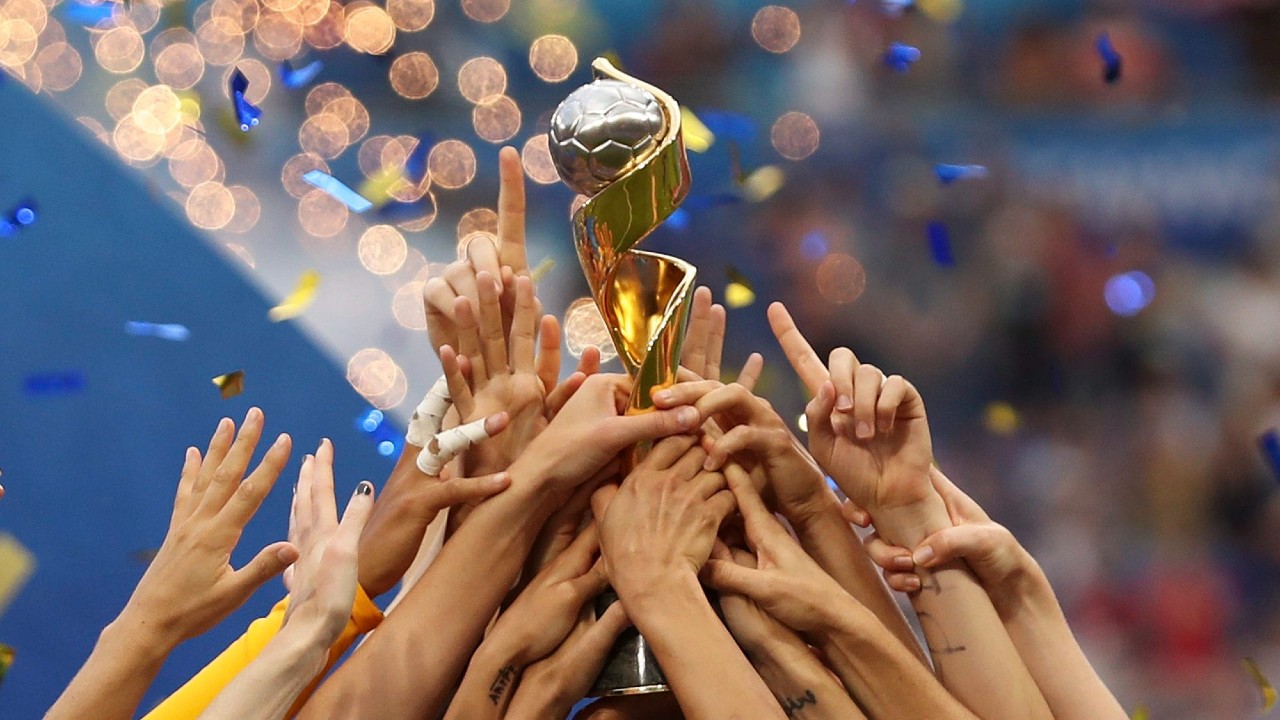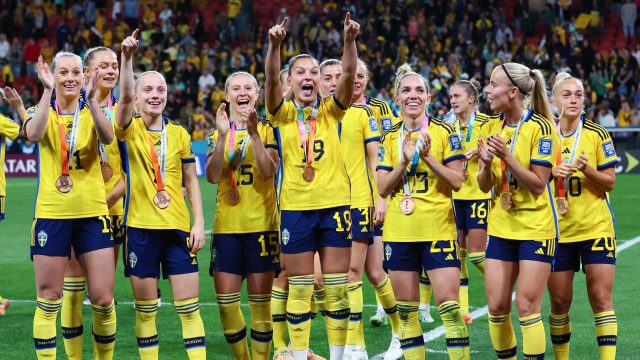
Sixty-two games later, the 2023 FIFA Women’s World Cup final is here.
On Sunday (6 a.m. ET) in Sydney, either England or Spain will be immortalized in women’s soccer history.
But the match doesn’t feature inconceivable storylines: there’s no David vs. Goliath dynamic at play, no Cinderella story.
Quite simply, it’s two soccer-crazed nations who punched their tickets to the last dance with grit, determination and resilience.
These teams both deserve to be here, but there can be only one winner. Which team is anybody’s guess.
Neither team has ever reached this stage of the tournament before, and they’ve been equally impressive in getting here. The Lionesses have conceded fewer goals than the rest of the final four teams combined, while La Roja have had the tournament’s most prolific attack since Day 1.
Here’s everything you need to know about the sport’s most coveted match.
Head-to-head
Although Spain and England have faced off 11 times since 2007, this will be the first time they’ve played each other at a Women’s World Cup.
Overall, the Lionesses lead the record 6-3-2 and won their most recent meeting — a 2-1 victory in extra time at the Euro 2022 quarterfinals.
In that fixture, Esther Gonzalez opened the scoring for Spain at the 54-minute mark. As the clock wound down, it looked as though the 30-year-old’s goal would be enough to send England packing.
But with just a few minutes remaining, super substitute Ella Toone equalized, before Georgia Stanway’s thumping extra-time strike sent Sarina Wiegman’s side to the semis. They eventually went on to win the tournament.
If the Euro quarterfinal is anything to go by, tomorrow’s final will be just as magnificent. England is aiming to win back-to-back international tournaments, while it’s Spain’s maiden major final at the senior level. As such, La Roja will be hungry to get their hands on the trophy.
England’s fearless leader vs. Spain’s management troubles
When it comes to success on the world stage, it’s up to players to follow the game plan and get the job done on the pitch. But behind the scenes, the choices and support from the managers can make all the difference in determining the mentality of the athletes.
That’s where England has an advantage. Their leader, Wiegman, is quite possibly the most influential manager the Lionesses have ever seen. The decision-maker is notorious for her “we” mentality and for consistently getting the best from her squad in high-pressure situations.
“To bring something different — communication, togetherness, and a philosophy England fans can really buy into. She’s captured everyone’s hearts,” retired England striker Ellen White told BBC Sport during their semifinal win.
Captain Millie Bright says that feeling pervades England’s locker room: “The mentality of this group is something I have never seen before. That comes through Sarina and the belief she gives us.”
This belief, support and togetherness give England an advantage over Spain, which is undergoing issues with its federation and manager Jorge Vilda.
In September 2022, 15 players sent the Spanish federation emails asking to not be called up to the national team. They cited a lack of professionalism, insufficient preparation for matches and other issues, which included being forced to keep their hotel room doors open until midnight and having their bags inspected after excursions.
In Spain’s semifinal versus Sweden, Alexia Putellas overtly swatted away Vilda’s hand as he tried to high-five her after subbing her off, highlighting the squad’s ongoing mutiny.
The question is: Will Spain’s off-field issues get to their heads in the biggest moment of their career, or will the players brush it aside and secure a win for themselves and their country?
Tactical battle
Spain’s tactical premise is built around possession and keeping the ball until they can generate attacking opportunities. The strategy has proved successful for La Roja, who lead the tournament in shots on goal (44) and completed passes (3,359) and also have the highest possession average (70 per cent). England sits second in these categories.
While Spain will likely not experience such dominant possession against the English, carrying the ball as much as possible is a way to frustrate the Lionesses, who enjoy having the ball at their feet.
A weakness Vilda’s side faces is difficulty defending counterattacks, which was on full display during their group stage loss to Japan. In this situation, the Spanish sometimes appear rigid and slow to react, which England will take advantage of.
Wiegman’s players scored their third goal against Australia in this exact manner by winning the ball and quickly carrying it up the pitch.
While the Lionesses struggled on attack in their first few matches, they’ve since managed to find their footing. As such, they’ll likely focus on their defensive approach when preparing for tomorrow’s match. England will have to find a way to shut down Aitana Bonmati’s creativity and Alba Redondo’s ball control if they want to have a chance at the trophy.
Additionally, England’s 3-4-2-1 formation seems compatible with Spain’s 4-3-3 lineup. If La Roja are carrying possession in England’s half, Wiegman’s wingers could drop back to limit the Spanish attack.
The Salma Paralluelo and Lauren James dilemma
Lauren James will be available for England after serving a two-match suspension. The 21-year-old received a red card against Nigeria in the round of 16 after wowing fans with her precision and clinical finishes.
In this year’s tournament, James has been directly involved in six goals. Her rate of goal involvement, which works out to a contribution every 48 minutes, is the second-best in the World Cup. France’s Kadidiatou Diani holds the top spot with seven involvements.
There’s no denying that James is a prolific and lethal athlete, but England managed just fine without her in the quarter and semifinals. Wiegman chose Toone to replace James in these matches, which resulted in fresh, fiery play and a stunning first goal against Australia. So the question is, will Wiegman keep the same lineup as last time out, or bring James back into the starting XI?
The debate is similar in the other dugout. In their first knockout match, Spain dismantled Switzerland fairly easily, but their next two matches were close calls.
In the quarter and semifinals, Salma Paralluelo came off the bench and scored the match-winner on both occasions. The Barcelona forward, who’s only 19 years old, has proved that she can change games and score goals in high-pressure moments.
While it’s clear she will take to the pitch in the final, many people wonder in what capacity.
Should Vilda use her dynamism and technicality from the start, or bring her on as a substitute if Spain finds itself in a tight situation? Only time will tell.







